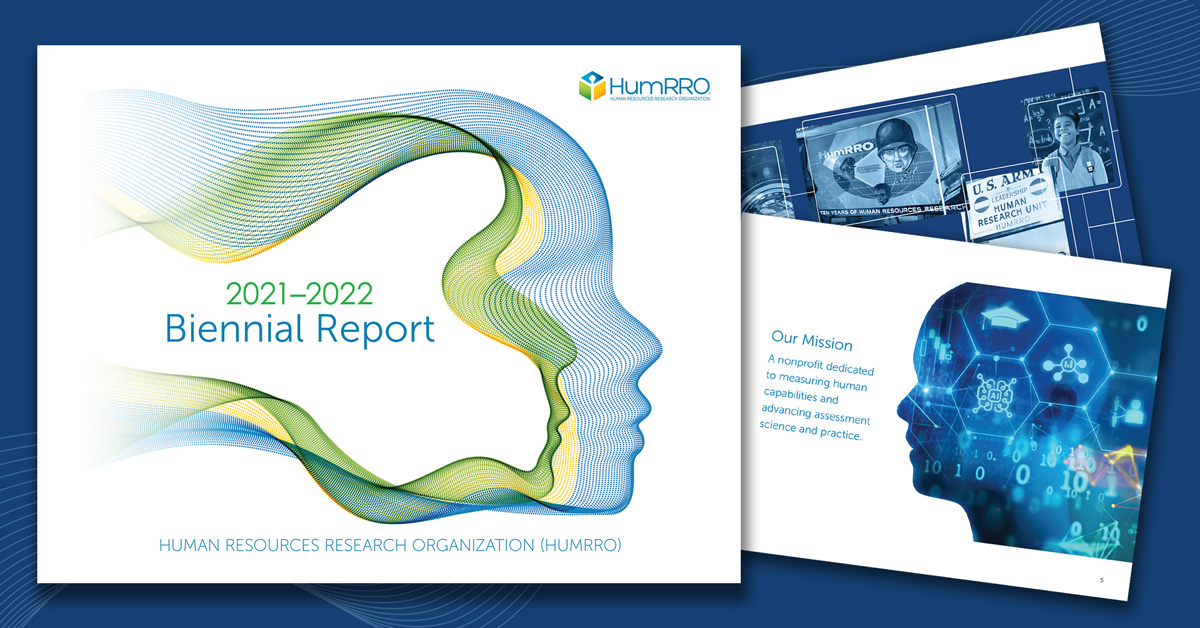Conducting impactful research that makes a difference in the real world is a career-long passion for HumRRO’s Deirdre Knapp, Ph.D., helping to explain why she was asked to be a keynote speaker at the International Military Testing Association (IMTA) Annual Conference in Raleigh, N.C., last month.
Knapp’s keynote address, “The Road to Impactful Selection and Classification R&D,” focused on taking a thoughtful and pragmatic approach to research, drawing on her career experience conducting military testing—first at the U.S. Army Research Institute and for the past 35 years at HumRRO. She spoke to attendees from 15 countries at the 62nd IMTA Annual Conference, which had been delayed two years due to the pandemic.
Knapp defines impactful applied research as that which increases knowledge and improves important outcomes valued by the organization, affected individuals, other groups, and society. New knowledge is most impactful if it’s shared one way or another with the scientific community.
While she spoke to an international military testing audience, Knapp’s key points and takeaways apply to all types of research and organizations.
Barriers to Impactful Research
Many barriers to impactful research exist: Tight resources, such as insufficient time and money, limited access to research samples, and research staff ill-equipped in terms of time or relevant expertise are common. Parochial thinking by applied scientists and/or their organizational customers, inconsistent direction from changing leadership (a particular issue in the military), resistance to change, and not focusing on topics relevant to stakeholders are also common barriers to conducting effective research.

Deirdre Knapp
Depending on our roles, many of these barriers are not likely under our control, but we can work to influence those who do.
Resource barriers are generally obvious, whereas other barriers are not always clearly identified or factored into research planning and execution. Recognizing and explicitly addressing “elephants in the room,” such as intra- or inter-organizational distrust and differences in interdisciplinary approaches to research design can help move things forward.
“Listen to varying voices and perspectives on research priorities and methods before setting course,” Knapp said. Indeed, tunnel vision on research questions and/or associated research methods—for example, sole reliance on criterion-related validity—can create barriers to advancement. Or, as Robert M. Guion, Ph.D., once said on this topic, “habit trumps progress.”
Strategies for Success
Knapp suggested several strategies for maximizing the impact of applied research. These included creation of broad research agendas, involving stakeholders from conception through execution, inviting input from independent experts, having effective knowledge management strategies to facilitate building on prior research and experience, and optimizing resources through inter-organizational collaboration.
She noted “external reviews complement and extend in-house expertise and breadth of both thinking and experience.”
Knapp drew on her own experiences to illustrate where failure to adopt some of these types of strategies reduced the impact of otherwise well-executed R&D projects and cases in which these strategies effectively enhanced the quality and impact of the research.
Key Takeaways
In closing, Knapp summarized key advice:
- Nothing beats well-conceived research designed to address implementation issues from the outset.
- Look out for short-term demands compromising long-term research agendas.
- Balance scientific and practical considerations in research design and implementation by involving end-users in the process. Often scientists think of what is conceivable while users define what is feasible.
- Create opportunities for broad input into your work.
- Define what impact means for you and your organization and recognize successes.
- Don’t underestimate the importance of knowledge management. Ask, how can we do this better both within our own work settings, within military psychology, and in the broader scientific community?
For more on HumRRO’s military testing expertise or how to translate impactful research into positive organizational outcomes, contact us.








